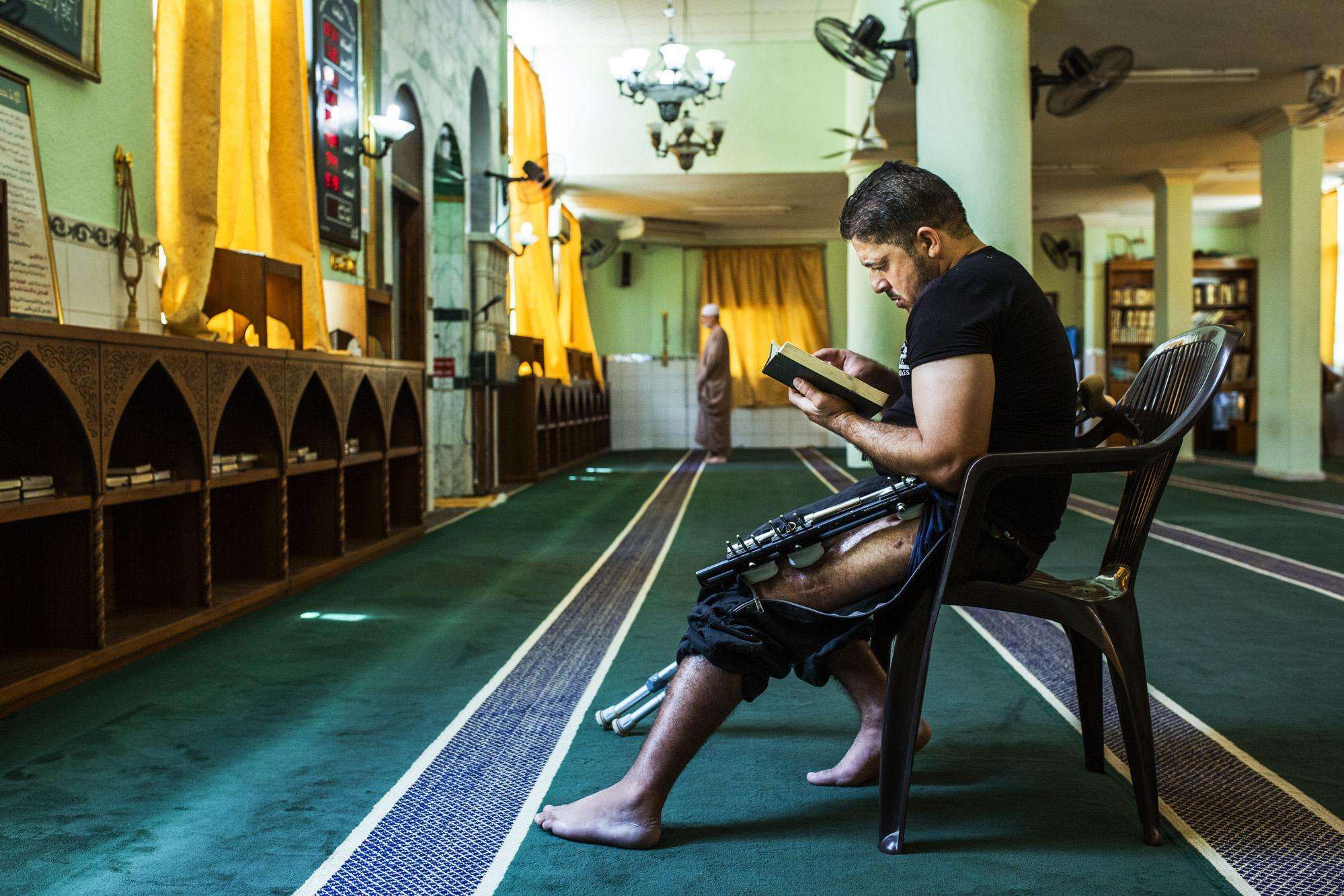Doctors Without Borders/Médecins Sans Frontières (MSF) staff at the organization's reconstructive surgery hospital in Amman, Jordan, are helping to heal the bodies and minds of war-wounded patients from across the Middle East. A team of surgeons operates on victims of conflict whose often complex wounds were caused by bullets, bomb blasts, and explosions. In addition to providing orthopedic, maxillofacial, and plastic and burn surgery, the hospital offers physiotherapy and mental health counseling. Research and innovation are important elements of the program.
"When we initially opened this hospital [in 2006], nobody thought we were going to stay 10 years," says Marc Schakal, MSF head of mission for the reconstructive surgery program. "But after 4,500 admissions and more than 11,000 surgical interventions, it’s clear we have work for the next 10 years, and one hospital is not enough."
A Team of Experts
The surgical team consists of four orthopedic surgeons, one maxillofacial surgeon, and a plastic surgeon, all from Iraq or Jordan. The expertise they have developed while treating conflict-related injuries makes the team uniquely equipped to restore functionality and mobility to patients harmed by weapons of war.
MSF originally opened the program in Amman to treat seriously war-wounded Iraqis who otherwise could not get access to proper health care. As violence spread across the Middle East, with the 2008 Gaza War and the conflicts following the Arab Spring of 2011, the project began admitting patients from Syria, Libya, Yemen, and the Occupied Palestinian Territories. In these countries, the destruction of key health structures, lack of medical staff, and impoverishment of local communities drastically limit the chances of recovery for victims of conflict.
Research and Innovation
More than 50 percent of patients at the hospital arrive with chronic infections, more than 60 percent of which are multidrug-resistant. In 2015, the reconstructive surgery program added a microbiology laboratory in the hospital to improve the quality of MSF's medical interventions for patients with infectious complications from conflict injuries. It also aims to provide guidance to other regional medical providers on the management of drug-resistant orthopedic infections.
The hospital runs an antimicrobial stewardship program to promote best practices in hospitals to help combat the growing global threat of antibiotic-resistant infections. This is achieved through implementation of the so-called "four Ds": correct drug, correct dose, correct duration, and de-escalation of antibiotic therapy.
3-D Printed Prosthetics
A 3-D printing project was introduced to the reconstructive surgery program through the MSF Foundation at the beginning of 2017. The project aims to design and produce prosthetics for upper-limb amputees as an alternative to conventional prosthetics, as well as explore the feasibility of other 3-D printed rehabilitation and prosthetic devices.
Although there are many prosthetic options for lower-limb amputees, there are few options for upper limbs. The advantages of 3-D printing allow for customized, lighter, and cheaper prosthetics that can potentially be produced much quicker than traditional artificial limbs.
Holistic Approach
The project is distinguished by its comprehensive and holistic approach to rehabilitation, as well as the vast number of patients treated. In 2016 alone, the hospital conducted approximately 3,500 physiotherapy sessions and 3,000 psychosocial consultations, in addition to more than 1,000 surgeries.
Physiotherapy is a core element of the patient rehabilitation process. After reconstructive surgery, it is vitally important that patients receive specific physiotherapy in order to develop functionality and build strength in the affected areas, as well as to prevent the possibility of contractures that can severely limit mobility.
The psychosocial care unit makes up the final element of the comprehensive treatment provided and is a vital service for those who have experienced the horrors and trauma of war. Psychosocial team members identify specific issues among children and organize activities to help them recover, including educational classes, art sessions, and music programs.
Manal, age 11, was badly injured in 2015 by a missile explosion in the northern Iraqi city of Kirkuk. Suffering from burns and muscle contractures across her face and down her right arm, Manal had not had any surgery before arriving at the MSF hospital in early 2017. After surgery and extensive physiotherapy, Manal is now able to close her eyes to sleep and use her hands to pick out tunes on the guitar.




